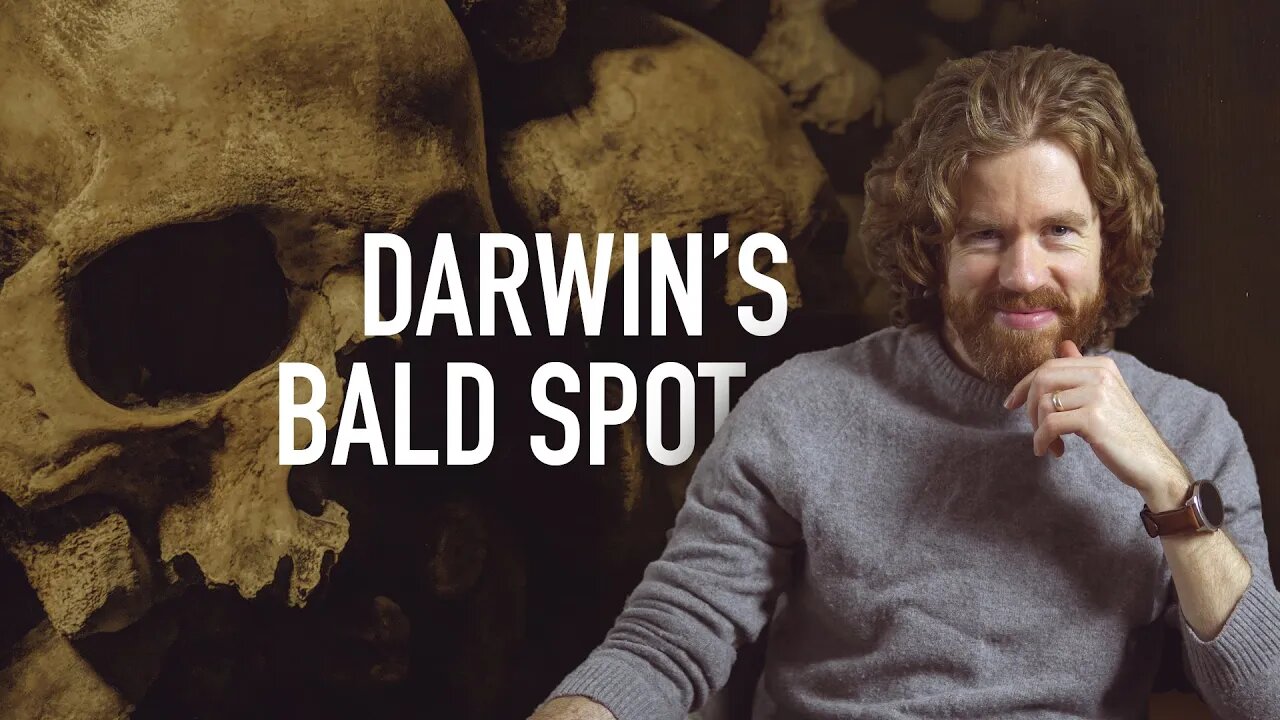Premium Only Content

Darwin's Bald Spot
Music written and generously provided by Paul Jernberg. Find out more about his work as a composer here: http://pauljernberg.com
Spanish translations by Vélez Translations, http://www.veleztranslations.com
I think most people can sympathize with the experience of apprehending some weird trait about our biology and then wondering, “why does that exist”? Maybe it’s something like hair in a weird place, or the shape of a toenail or something like that.
Or maybe it leads to more complicated questions, like why do our bodies undergo changes like male pattern baldness? What is the reason?
Some of these kinds of questions seem to have obvious answers like why do we have eyebrows? Obviously to more easily facilitate the act of flirting. But male pattern baldness doesn’t have an explanation that is so immediately available.
In times that were more unanimously religious, people might have responded to that question by explaining that it helps us grow in humility in opposition to pride which is the root of all sin and evil.
As a man ages, he acquires more wealth and status and if he kept his youthful good looks, temptations towards lust and pride would overwhelm him. So, as a mercy and aide to his sanctification, God saw fit to see to it that his sexual appeal should decline to help him keep his commitments to his family.
But today, we’re far more scientific than such speculations, so we would prefer to have a natural answer to a question like that: one that resolves to keep things at ground level rather than up in the clouds.
And of course, the answer we’d expect would come through a Darwinian framework. And since Darwin himself suffered this fate, he may have asked the question himself as he fumbled with his combover each morning.
Whatever the explanation is, for anyone with any familiarity with Darwinism, evolution, or survival of the fittest, we know that it would be some attempt to explain how it encourages the survival of the species.
But when a naturalist or a Darwinist says that the reason a trait exists is for the survival of the species, they’re just begging for the very obvious next question which is, “what is the reason the creature has traits that help it survive?” or “why is survival of the species a good thing?”
Saying “survival” is the reason is just kicking the can further down the road.
It seems to me that when we attempt to answer the question, “what is the reason for…[fill in the blank]”, we’re admitting, we’re conceding that there is purpose and meaning behind the way a thing is or the way all things are.
These kinds of question arise when we perceive something that seems like it shouldn’t be. We expect things to be a certain way as compared to how they are and when those things contradict, we are faced with a feeling that reality is unreasonable when it ought to be reasonable.
Read the whole transcript at https://brianholdsworth.ca
-
 4:20
4:20
Brian Holdsworth
1 year ago $0.04 earnedThings Are Going to Change for Me Now...
2511 -
 1:00:32
1:00:32
The Dan Bongino Show
4 hours agoThe Biggest FBI Scandal In History Is Unfolding (Ep. 2395) - 01/07/2025
464K1.38K -
 LIVE
LIVE
TheAlecLaceShow
3 hours agoGuest: Tim Kennedy | Cybertruck Bomber | Trump Certified | Trudeau Resigns | The Alec Lace Show
411 watching -
 1:01:01
1:01:01
PMG
2 hours ago"Gates Wants to Meet With Trump & Are Alternative Treatments Really Covered Up?"
562 -
 LIVE
LIVE
The Dana Show with Dana Loesch
1 hour agoMETA'S ZUCKERBERG ENDS FACT-CHECKING PROGRAM | The Dana Show LIVE On Rumble!
536 watching -
 47:59
47:59
The Rubin Report
2 hours agoListen to ‘The View’ Crowd Gasp as Sunny Hostin Accidentally Reveals How Ignorant She Is
50.1K69 -
 28:29
28:29
Grant Stinchfield
1 hour agoMeta Claims to End Censorship... This is More about Protecting Meta Than Speech!
2.01K3 -
 1:08:56
1:08:56
Bare Knuckle Fighting Championship
2 hours agoThe Bare Knuckle Show with Brian Soscia
1.65K -
 LIVE
LIVE
The Shannon Joy Show
5 hours ago🔥🔥Debt Bomb Incoming & The Bitcoin Banker Bailout. You'll Own Nothing If The Planners Succeed🔥🔥
483 watching -
 LIVE
LIVE
Sgtfinesse
2 hours agoSeason of Conquerors in 2 weeks
221 watching